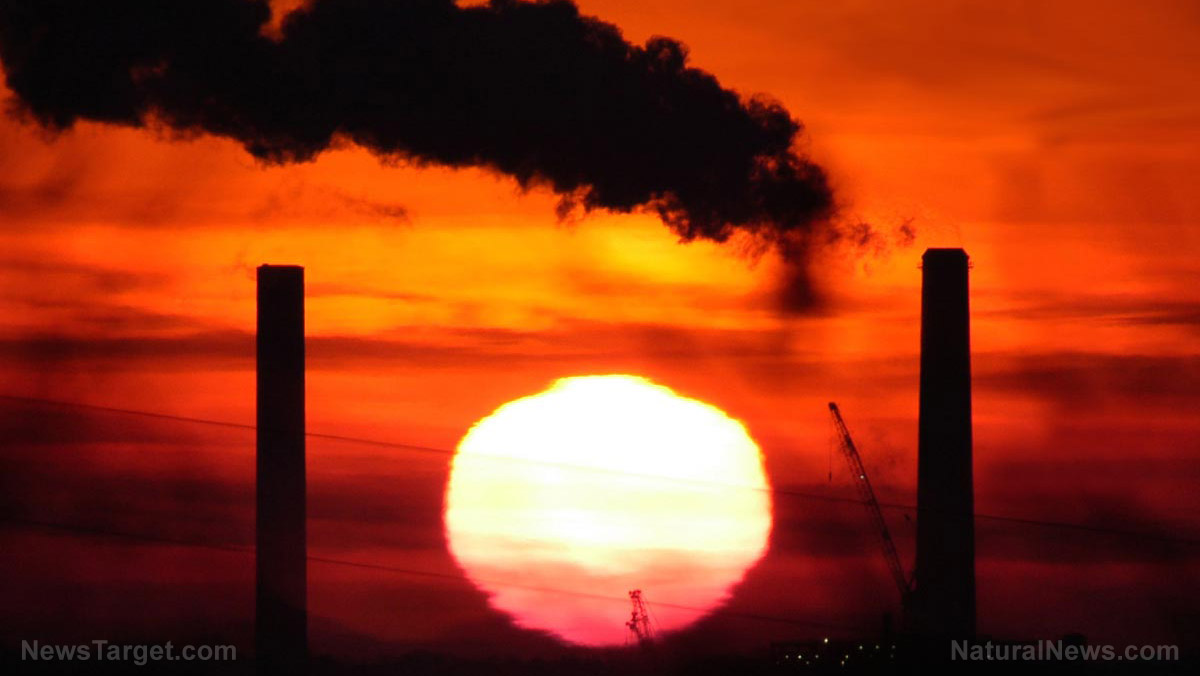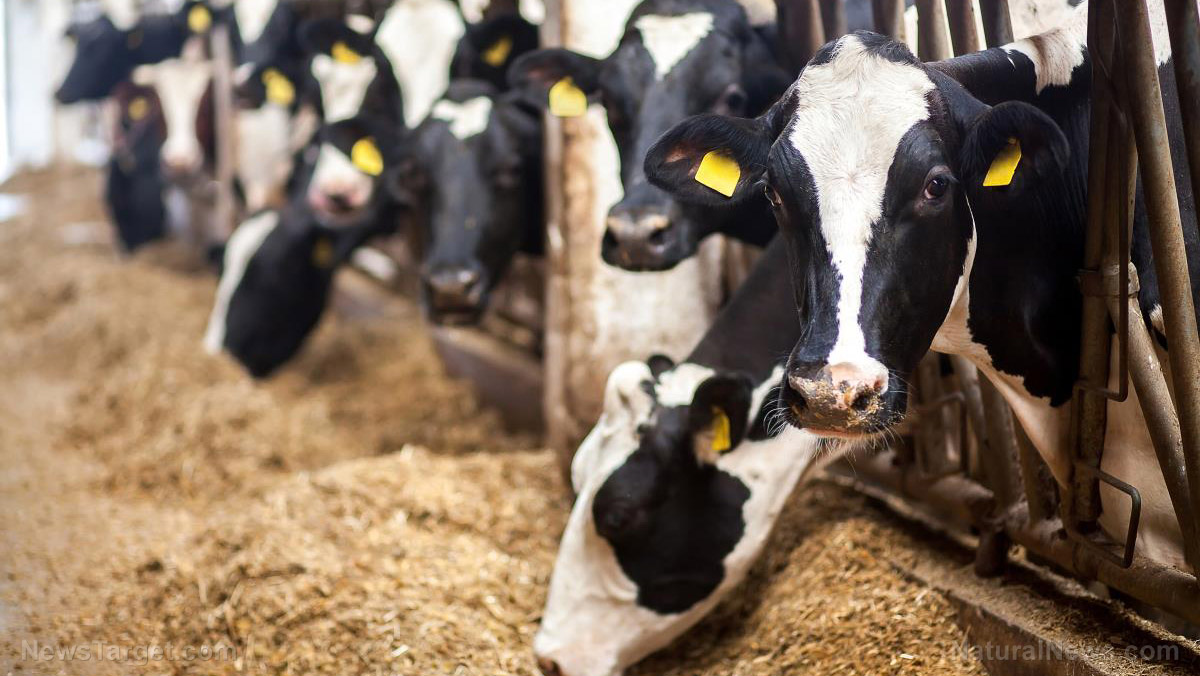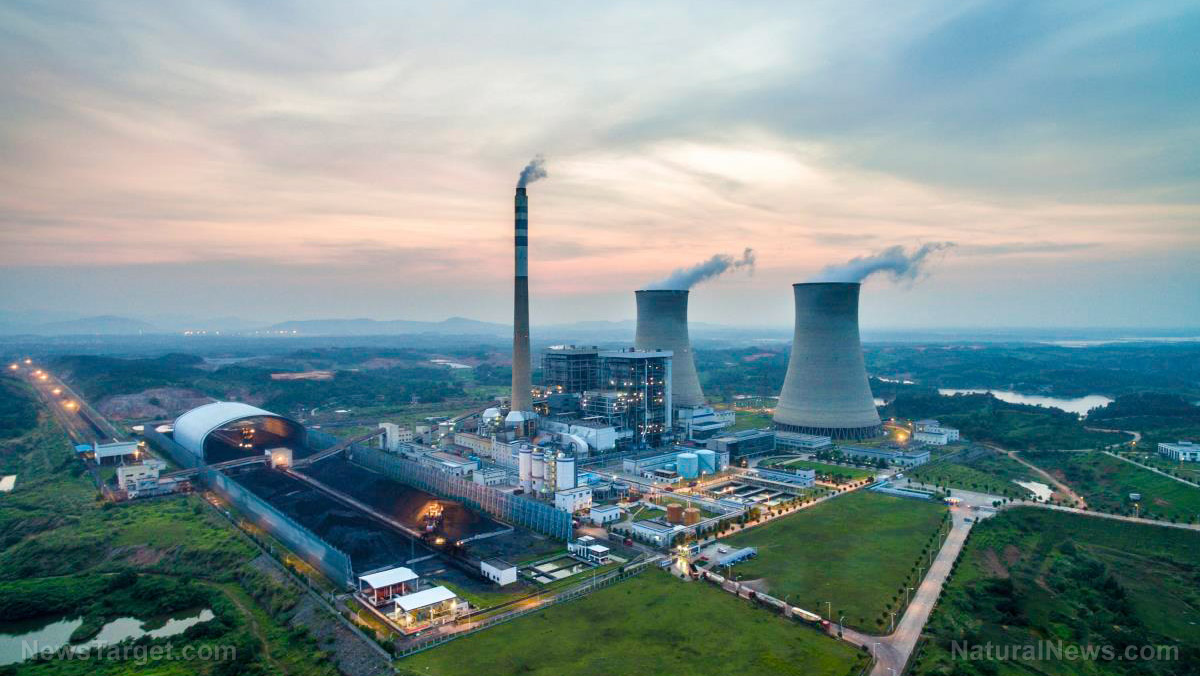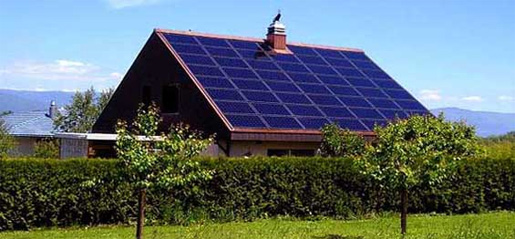EPA proposes repeal of climate regulations on power plants: A new era for energy policy
06/15/2025 / By Belle Carter

- The Trump administration, through the EPA, has proposed to repeal all federal climate regulations on fossil fuel-fired power plants, arguing that emissions from these plants do not significantly contribute to dangerous air pollution.
- The draft rule aims to eliminate all greenhouse gas (GHG) emission standards for coal and gas facilities, asserting that existing air quality laws do not warrant their regulation.
- Environmental groups, such as the Environmental Defense Fund, have condemned the proposal, warning that it disregards the EPA’s responsibility to protect the public from pollutants like mercury, arsenic and climate pollution. The decision is expected to face legal challenges from environmental advocates who argue it violates the Clean Air Act.
- This proposal is the latest in a series of regulatory changes aimed at reshaping the EPA’s approach to climate change. It follows past legal and political battles, including the introduction of the Clean Power Plan in 2015, the Affordable Clean Energy Rule in 2019 and the Supreme Court’s 2022 ruling in West Virginia v. EPA, which limited the EPA’s authority to regulate GHG emissions.
- The proposed rule will undergo a public comment period, including a virtual public hearing for stakeholder input. The move signifies a significant shift in U.S. energy policy, prioritizing energy dominance and independence through the continued use of fossil fuels.
The Trump administration, through the Environmental Protection Agency (EPA), has proposed to repeal all federal climate regulations on fossil fuel-fired power plants.
The draft rule, issued on Wednesday, June 11, declares that power plant emissions do not “contribute significantly to dangerous air pollution,” signaling a potential overhaul of the nation’s energy and environmental policy landscape.
The EPA’s proposal outlines plans to eliminate all greenhouse gas (GHG) emission standards applied to coal and gas facilities. The agency asserts that such emissions are not substantial enough to warrant regulation under existing air quality laws.
EPA Administrator Lee Zeldin defended the move, accusing the Biden-era EPA of targeting American energy industries under the guise of environmental stewardship.
“According to many, the primary purpose of these Biden-Harris administration regulations was to destroy industries that didn’t align with their narrow-minded climate change zealotry,” Zeldin stated. “These rules have been criticized as being designed to regulate coal, oil and gas out of existence.”
Environmental groups have swiftly condemned the proposal. Vickie Patton, general counsel for the Environmental Defense Fund, warned that the rollback “recklessly disregards its responsibility under our nation’s clean air laws to protect the American people from mercury, arsenic and climate pollution from industrial smokestacks.” (Related: Global greening surges 38%, but media silence reinforces “climate crisis” narrative.)
The decision could have far-reaching consequences for U.S. energy policy. If finalized, the repeal would nullify previous mandates on carbon capture, emissions limits and toxic metal reductions at new and existing power plants. It would also bolster domestic coal and gas industries by removing regulatory barriers, albeit drawing legal challenges from environmental advocates – who argue the move violates the Clean Air Act.
Historical context
The proposed repeal is the latest in a series of regulatory changes aimed at reshaping the EPA’s approach to climate change. It follows a decade of legal and political battles over the agency’s authority to regulate GHG emissions from power plants.
- 2015: The Clean Power Plan (CPP) and New Source Performance Standards (NSPS). The Obama administration introduced the CPP, which aimed to reduce emissions from existing power plants by 32 percent from 2005 levels by 2030. The EPA also issued the 2015 NSPS, setting standards for new power plants.
- 2016: Legal Challenges and Supreme Court Intervention. The CPP faced immediate legal challenges, leading the Supreme Court to issue a stay in February 2016, halting its implementation.
- 2018: Proposal to Revise NSPS. The EPA proposed revisions to the NSPS, aiming to relax emission standards for new coal plants.
- 2019: Affordable Clean Energy (ACE) Rule. The Trump administration replaced the CPP with the ACE Rule, which focused on heat rate improvements at individual plants rather than broader systemic changes.
- 2021: D.C. Circuit Vacates ACE Rule. The D.C. Circuit vacated the ACE Rule, including the repeal of the CPP, ruling that the EPA had exceeded its authority.
- 2022: Supreme Court Ruling in West Virginia v. EPA. The Supreme Court limited the EPA’s authority to regulate GHG emissions under the Clean Air Act, ruling that the agency could not impose a nationwide transition away from coal.
- 2024: Carbon Pollution Standards (CPS). The EPA promulgated the CPS, which included emission guidelines for existing fossil fuel-fired steam generating units and standards for new and reconstructed combustion turbines.
- 2025: Proposed Repeal of GHG Standards. The current proposal seeks to repeal all GHG emission standards for fossil fuel-fired power plants, effectively dismantling the CPS.
The path forward
The proposed rule will undergo a public comment period before a final version is adopted. The EPA will hold a virtual public hearing during which stakeholders can provide oral testimony and submit written comments. The agency encourages public participation and has provided detailed instructions on how to submit comments and register for the hearing.
The EPA’s proposal to repeal climate regulations on power plants represents a significant shift in U.S. energy policy. It reflects the current administration’s prioritization of energy dominance and independence through the continued use of fossil fuels.
Watch the video below where an expert blasts the World Bank and rich countries over climate hypocrisy.
This video is from the NewsClips channel on Brighteon.com.
More related stories:
“Lukewarming” challenges the climate change narrative: A new perspective on global warming.
Climate alarmists promote corn-based cow diets that alter milk composition and cheese quality.
Jerome R. Corsi issues a controversial challenge to mainstream climate narratives.
Sources include:
Submit a correction >>
Tagged Under:
big government, clean air, Climate, climate change, climate science, conspiracy, deception, Ecology, energy policies, energy supply, environ, EPA, fossil fuels, Greenhouse Gas, Joe Biden, new energy report
This article may contain statements that reflect the opinion of the author




















